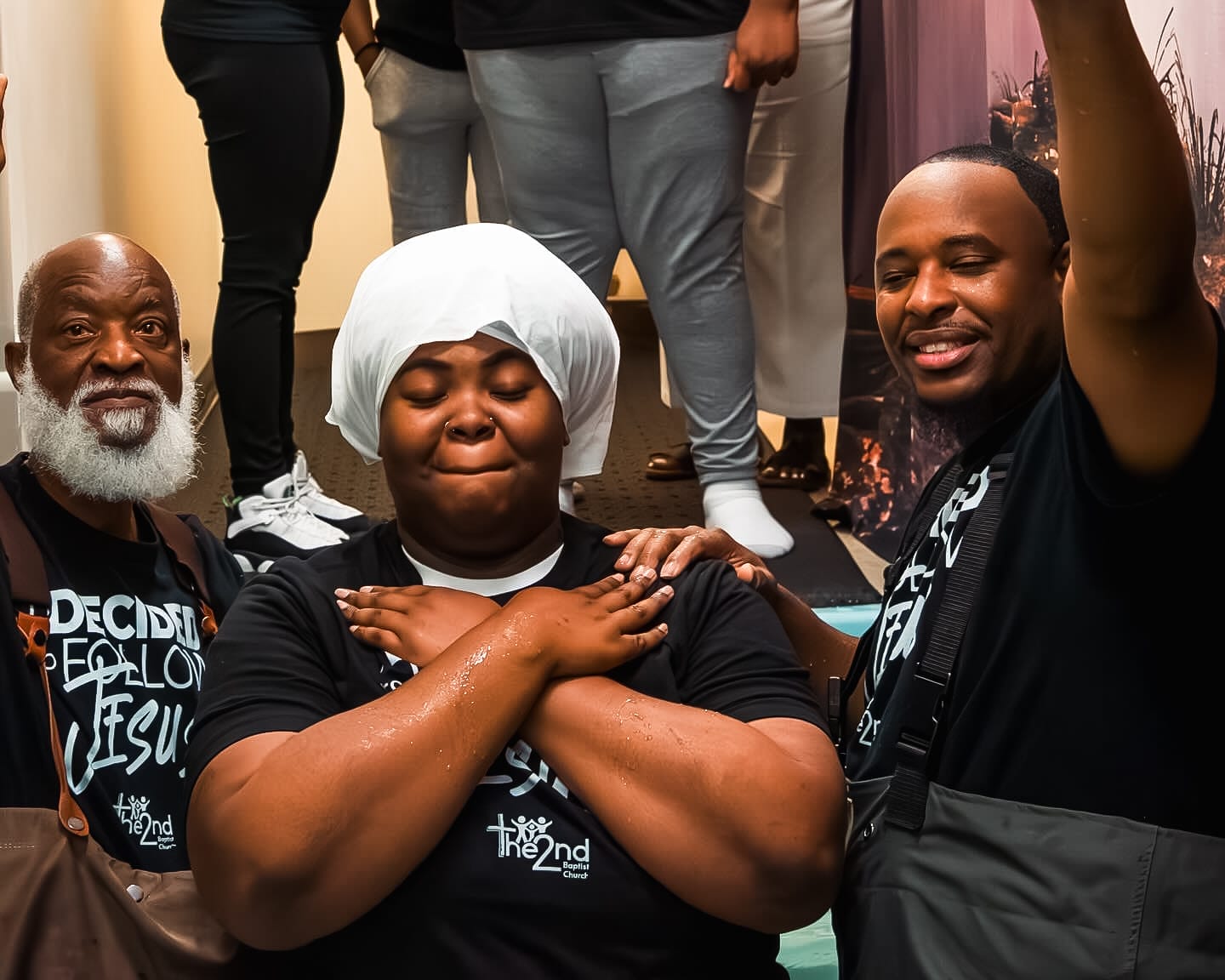Let’s Do This Together
Have you ever heard of a church that began out of a chicken coop? Well, that’s exactly how Second Baptist Church started. In 1957, 18 members began meeting behind Lewis Rawling’s house on Tatum Street in a coop. Since then, the church has outgrown the coop and become a cornerstone of faith and service in the John Barrow neighborhood of Little Rock.
Recently, I sat down with Ricky Calhoun Jr., Second Baptist’s youth and young adult pastor, to talk about Second Baptist’s impact on the community. His connection to the church goes back to childhood. “I grew up right across the street. I probably threw rocks at the church when I was younger,” he says, reflecting on his youth in the neighborhood where he now serves.
Pastor Calhoun tells me things have gotten better for the John Barrow community thanks to the work of churches like Second Baptist and others. He reflects on what things were like growing up in the area:
Crime, poverty, gangs. There were four gangs right here on this strip. I was a part of one right across the street behind the church. It was rough over here. There was a time when nobody should have been out after eight o’clock. A lot of my friends got shot or killed. A lot of my friends are in jail now. We had churches like Second Baptist and Mount Sinai down the street that started pouring into this community again. I grew up right across the street. I ran up and down the street every single day, passing Second Baptist. I went to Henderson Junior High and Parkview High School. So, all of us here have a love for this community. We want to see it do even better.
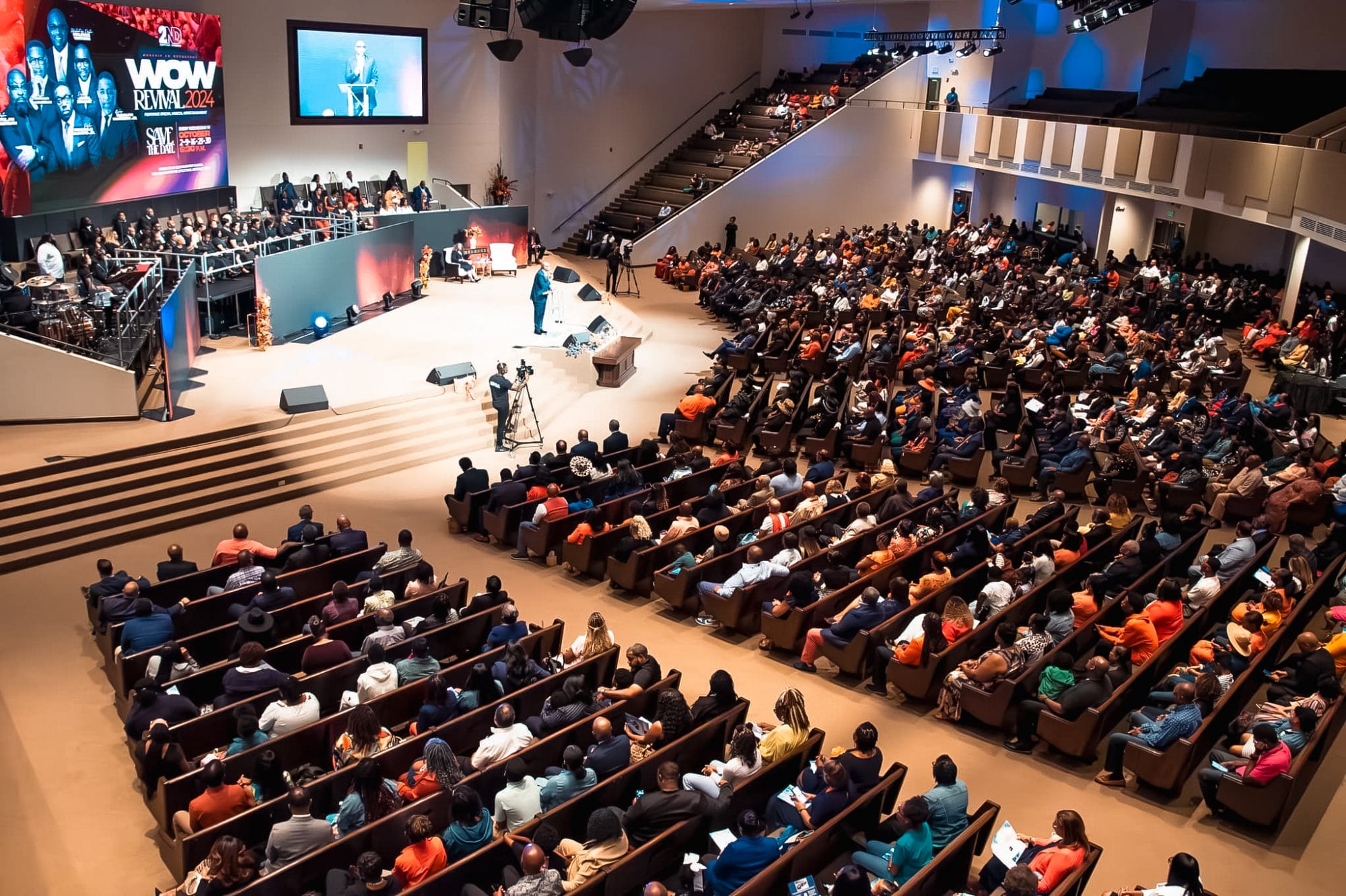
One Community, One Family
Pastor Calhoun celebrates the commitment of the congregation to do the work together—as one community, as one family. The one statement you will hear repeatedly throughout the church is, “Let’s do this together,” something that has become a calling card for Second Baptist.
Today, the church fits 3,000 people in its sanctuary. It also has a gymnasium and other buildings designed and built to serve the people of John Barrow, not just church members. “We went from a chicken coop to where we are now, and that’s a testament to how much God has done through us,” Pastor Calhoun says. “This church isn’t about the building, though. It’s about the people and how we can serve our community.”
For Pastor Calhoun, youth ministry in his community is deeply personal. “It’s heartfelt work. I’ve had the opportunity to pour back into the place that made me who I am. These kids that I work with, I was them once. I’ve walked the same streets, faced the same challenges,” he explains. His connection to the area drives him to help youth navigate the many challenges they face in a tough environment.
“When I came over to the church, Dr. Kelly was the pastor. When he was recruiting me, I asked him one question. I said, ‘Show me the fruits of the church.’ I’m big on the fruits of the church, especially if I’m going to be a part of it. And he took me to all of this and showed me what they were doing in the community,” Pastor Calhoun recalls. What he saw back then was a fruitful church working together to influence the community through different outreach, partnerships, and programs.
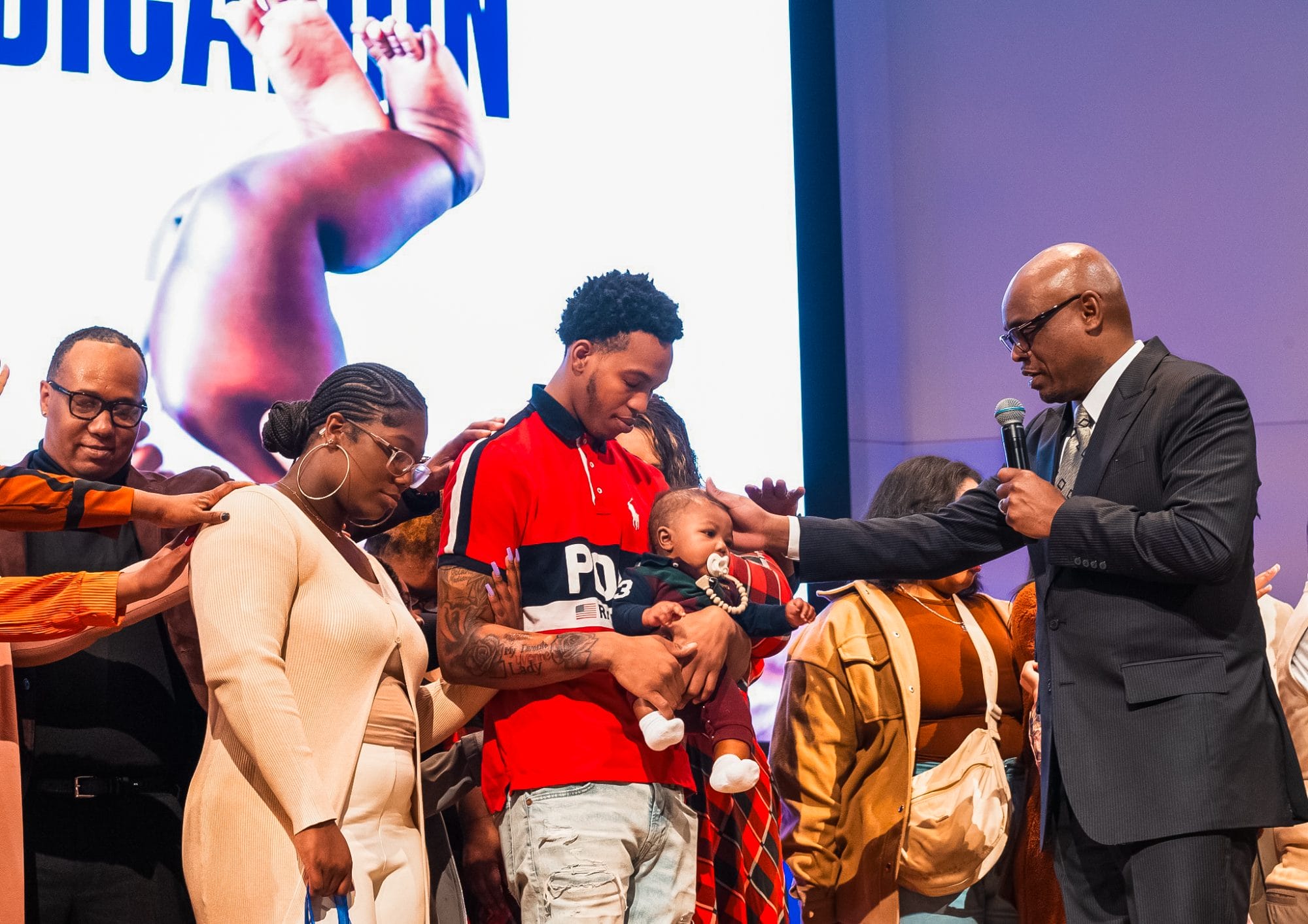
Lifting Up The Least of These
Second Baptist is anything but a place for just preaching and potlucks. It’s a lifeline for many families in the area. The church’s various ministries provide crucial support to those in need. From food pantries to substance abuse recovery programs, the church aims to lift up “the least of these” in the community.
One way the church meets immediate needs is through its food pantry. “We have a pantry that’s open two days a week, free food, and now we’re open on Saturdays,” Pastor Calhoun explains. The food pantry and other services the church offers are, as Pastor Calhoun tells me, a gateway to building relationships with people in the community. “People may come in to get a light bill paid, but we were able to help with something else.”
The church’s FREE ministry addresses substance abuse, offering classes and support to individuals struggling with addiction. The church also runs a grief share program, helping individuals process loss in a safe and compassionate environment. Through this multitude of ministries, Second Baptist stands as a beacon of hope in the community, offering people the help and hope they need for a better tomorrow.
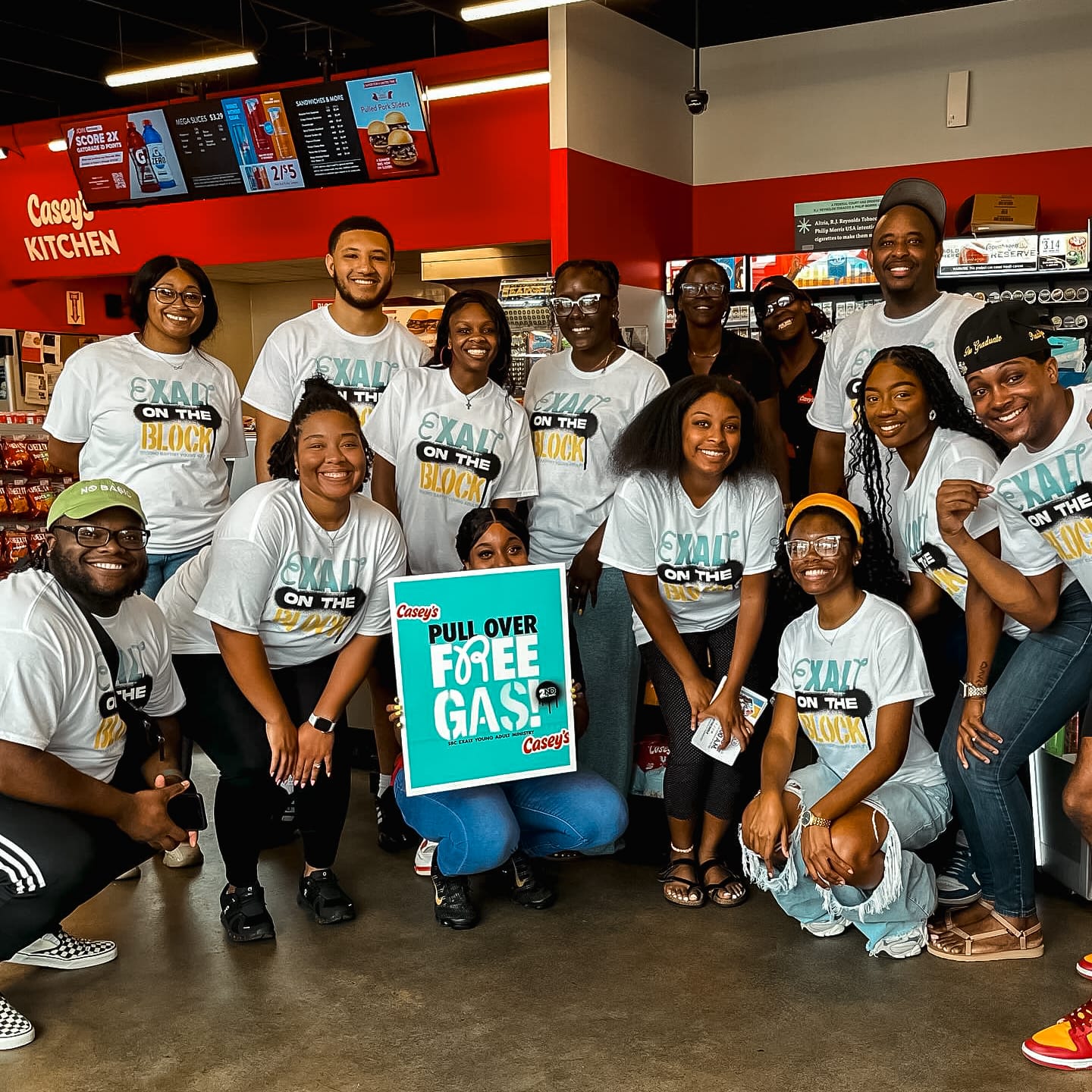
“I always tell people, ‘Come in, take any class, and we will treat you just like family, and it’s open to everybody,’” says Pastor Calhoun. What becomes clear in our conversation is the value that Pastor Calhoun and others put on blessing their community. “We try to touch the community in a way that is not boasting or bragging, but let them know we are doing it because of Christ and not to be seen.”
He recounts one of Second Baptist’s most impactful outreach efforts. “Every year, we do a gas giveaway. We go right up here to Casey’s and give about $5,000 worth of gas away for free.” The event not only provides free gas but also includes food and the opportunity to invite people to the church. He shares a story of a woman who came with her seven children: “I invited her to the church. She came twice just because we gave her free gas. She ended up joining. We ended up baptizing her, and she’s been here ever since.”
A Bridge Between Churches and Schools
One of the most impactful ways Second Baptist engages others is through its church/school partnerships with Parkview and JA Fair High School. Through these partnerships, the church provides vital support for students and their families, teachers, and school administration. Through these partnerships, they can address deeper needs beyond academics.
Pastor Calhoun tells me that priority number one for him after he arrived at the church was schools. “When I first got here in 2017, my overall goal was to get us into the schools.” Having graduated from Parkview High School, he returned to his former school to offer support. What started as delivering pizzas to seniors quickly evolved into something bigger. “I started having groups that went from four or five of my students to 50 or 60 kids meeting in two pits at the school to have a discussion about Christ.”
At JA Fair, the church’s involvement has increased exponentially. “We actually go out and feed the teachers. We provide school supplies and backpacks for all the kids. For us to go into JA Fair with families, helping the need,” Pastor Calhoun tells me. Recently, the church collected over 1,200 pairs of shoes for students through a shoe drive. Examples like this make it clear that if there is a need, the people of Second Baptist will be there to meet it.
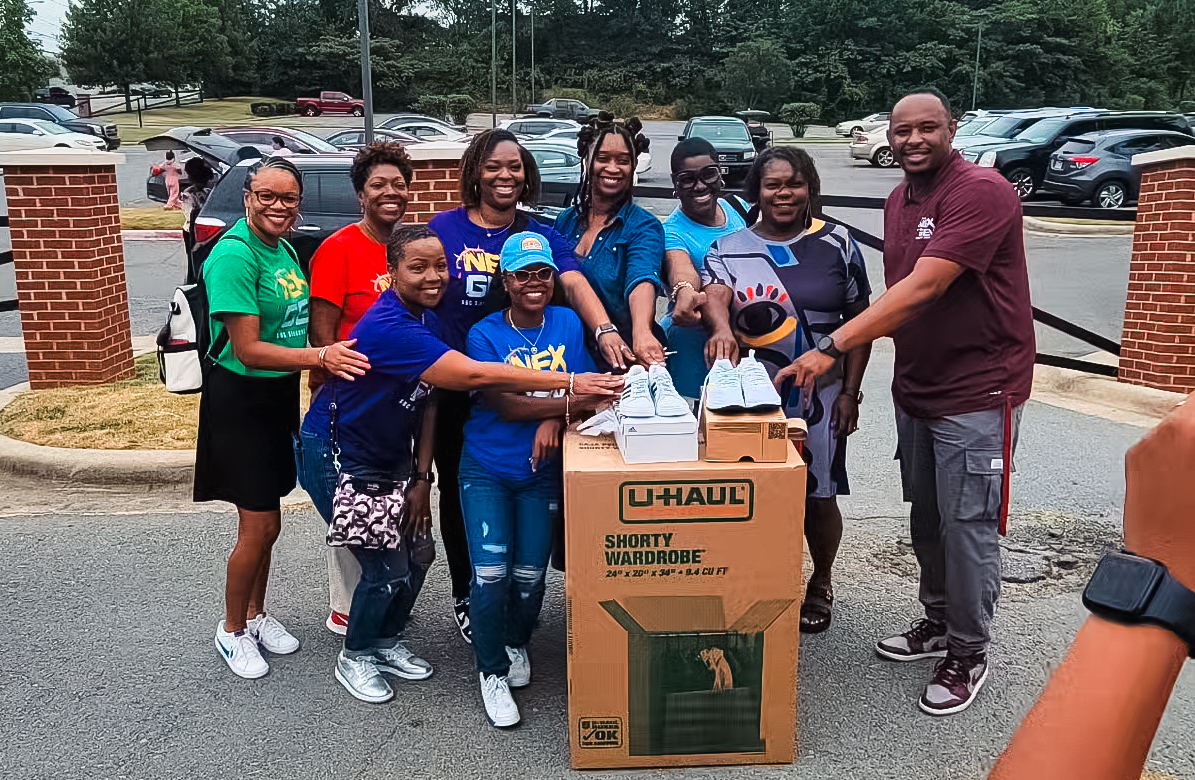
Often, these partnerships present needs that go much deeper. Pastor Calhoun recalls a time when that was the case. “Last year I met a seventh-grader who was pregnant. [One of the teachers] told me, ‘Hey, we got a situation.’ I took some workers I know, connected them, and we got her through that situation. We talked with the parents because they were not really in her life. We were able to take them through our free program, which is substance abuse because they had some issues. Now, they’re on a journey that’s been great for them. She did have the child. She did not have to drop out of school or anything. I check in on her. I stay in tune with the parents to make sure that they are staying steady, and they are.”
Second Baptist’s church/school partnerships are about more than providing charity; they demonstrate the love of Christ in real and tangible ways for others. For a student growing up without a father in the home or a family struggling to make ends meet, these partnerships can be life-changing. A young boy meets a mentor who becomes a father figure. A family feels seen and cared for by a community that provides wrap-around support. Pastor Calhoun puts it this way: “We’re here for you, and we’re going to walk through this together.” He goes on to say, “At the end of the day, our goal is to connect you to Christ. That’s the overall goal, and that’s what I’ve seen.”
From Critic to Convert
While Second Baptist puts a lot of focus on reaching the hungry and hurting in their community, they also emphasize equipping leaders. Pastor Calhoun lights up when he talks about one tool the church uses to establish believers in the faith—The First Principles series. (For more information about The First Principles, check out our article about the series.)
At first, Pastor Calhoun admits he was hesitant about going through the series. “When it first got introduced, I was on the team saying, ‘Man, I don’t need that book.’ At that time, the discipleship pastor said, ‘Rick, just go through the first book, Becoming a Disciple.’ Keep in mind that small groups were foreign here. We didn’t do small groups. So the first time, we did small groups with The First Principles, we started going through this book, and I said, ‘Wow!’ It blew my mind. I was like, wait a minute, hold up. This little book shows how the early church operated. It blew my mind.”
Pastor Calhoun reports how The First Principles “took our church by storm” to the point where the church took small groups through The First Principles in the summer rather than doing a traditional Bible study. “Several classes on campus met. We just divided up in different classrooms. It got to the point where we started having Bible studies, and then it grew so much that we had to do a Sunday school class just for The First Principles.”
Pastor Calhoun loves the discussion-based approach of The First Principles. “We’re used to lecture. You just sit, you don’t talk, you don’t ask questions. It took time for the congregation to adjust, but we had a great person to train all our facilitators and encourage open dialogue.” The First Principles series gave people permission to ask questions and engage in dialogue about the Bible. By taking a Bible-based approach it also dispelled a lot of myths about what it means to study the Bible and grow as a disciple of Jesus.
Once a critic, Pastor Calhoun is now an outspoken advocate for The First Principles. “I tell anybody, once you read the first book, that really will tell you that you didn’t know some stuff. I felt like I didn’t know some stuff.”
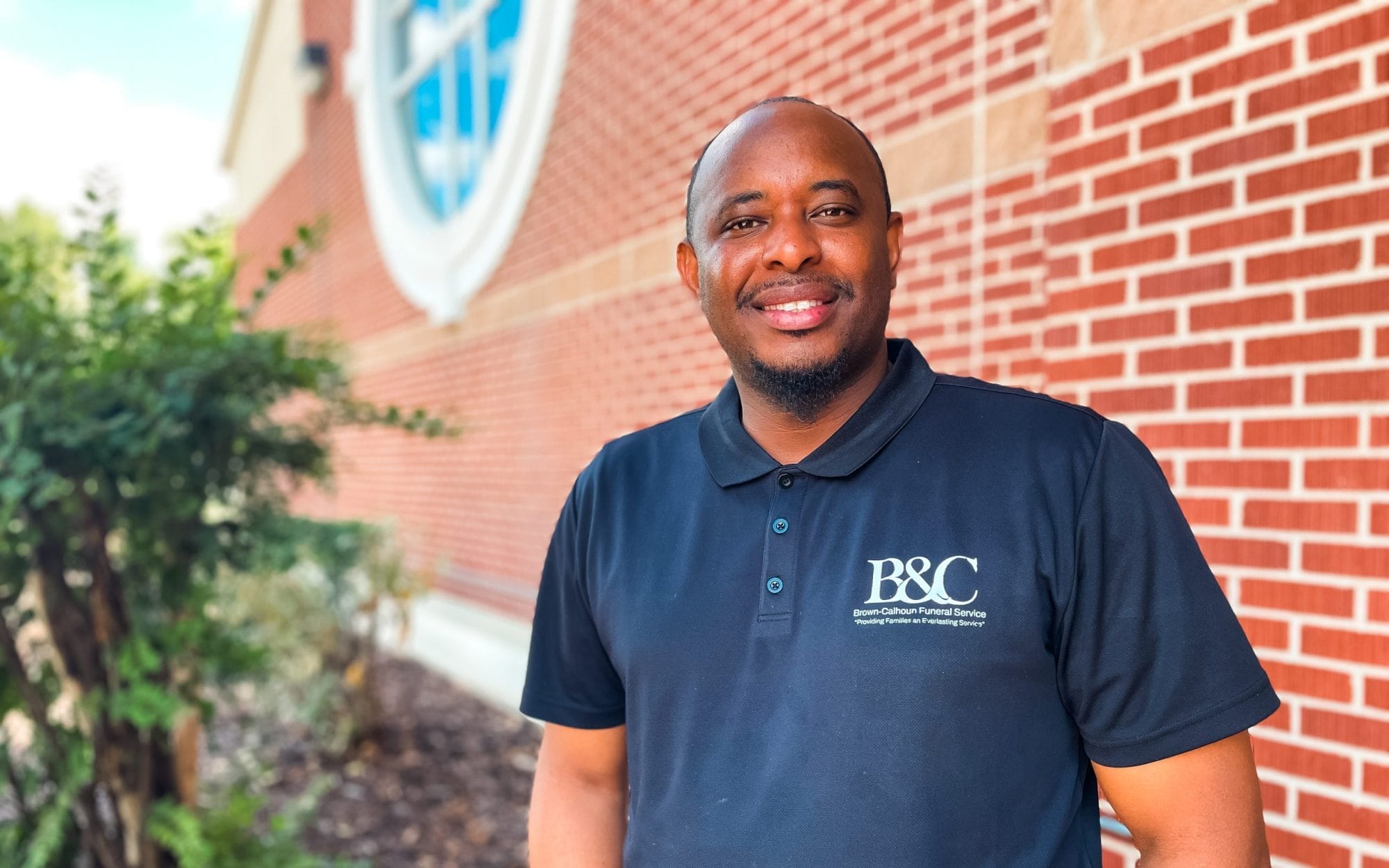
The Power of One
When I ask Pastor Calhoun about the difference it would make in Central Arkansas for more churches to work together in praying for the city and seeking its prosperity, he tells me:
It would help our city because we’re still divided. Right now, we’re all still on our own pillars and in more competition than actually coming together. If churches, the Body of Christ, came together to serve this city, we could stop the homelessness that’s on the corner. We can stop some of the things that go to legislation like abortion. Our voice would be heard.
We should all be on one team. There’s so much we can do to get our voices back inside the government and our city and state to be heard. That’s what I love about CityChurch Network—you guys connecting churches, connecting partnerships. I think the more we do that, the more it helps.
We are grateful for the exceptional work of Second Baptist Church and other churches in our city that are united in strengthening families and serving their communities. They are helping the whole Church grow.
Speaking the truth in love, we will grow to become in every respect the mature body of him who is the head, that is, Christ. From him, the whole body, joined and held together by every supporting ligament, grows and builds itself up in love, as each part does its work.
Ephesians 4:15-16
